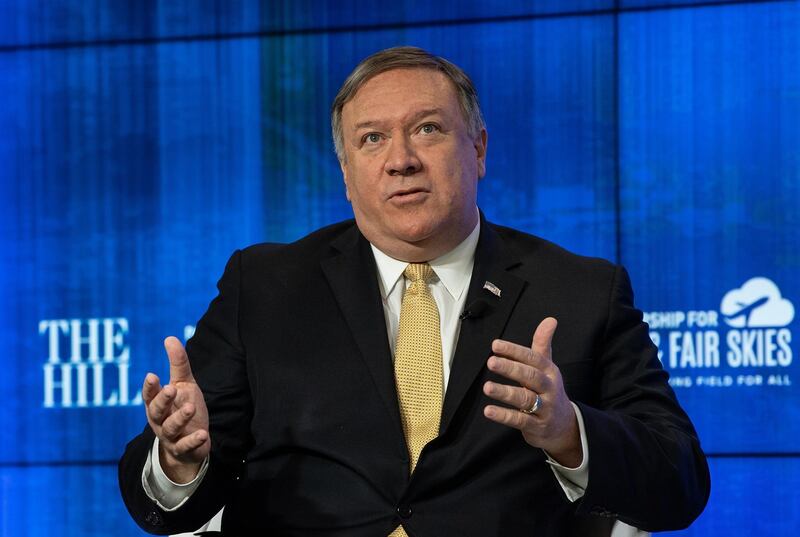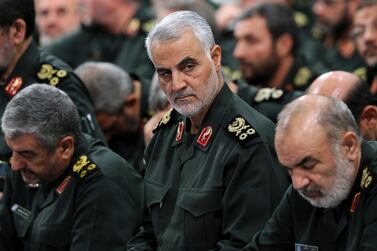US Secretary of State Mike Pompeo on Monday accused Iran of directing Yemen's Houthi rebels to renege on commitments they made in Stockholm last December and continue fighting.
The Houthis "continue to refuse to comply with the agreements that they signed up for in Stockholm, Sweden, they refuse to withdraw from the port of Hodeidah ... this is because Iran has chosen to direct them to do that", Mr Pompeo said at an event in Washington hosted by The Hill newspaper.
He said Iran's guidelines to the Houthis were also seen “with the missile system, the hardware, the military capability” that they had acquired.
“These are not Houthi indigenous weapons systems. They have been smuggled into Yemen from Iran,” Mr Pompeo said.
He defended Washington’s roles in Yemen, fighting Al Qaeda in the Arabian Peninsula supporting Saudi Arabia in countering the missile threat from the Houthis.
"The Saudis have had missiles fly that could have hit you [US citizens] at King Khalid airport," Mr Pompeo said.
"The support we are providing to the Saudis is in America’s best interest."
He said the people happiest to hear asked about the recent Congress resolution to end America’s role in Yemen, which was vetoed by President Donald Trump, were Iran's Qassem Suleimani, head of the Islamic Revolutionary Guard Corps, and supreme leader Ayatollah Ali Khamenei.
Mr Pompeo also defended the decision to end sanctions waivers granted to eight countries that import oil from Iran.
“We are convinced we can make sure the markets are adequately supplied,” he said.
Russia, Turkey and China have indicated that they might work around the sanctions after the waivers end on Wednesday.
“Sovereign nations make their own choices, individual businesses do their own choices," Mr Pompeo said. "What we can do is prepare a sanctions machine that makes it incredibly costly” for those breaching them.
He said that the Trump administration was not seeking regime change in Tehran.
“We are hoping that the regime makes a set of decisions that are very different from the ones that they are making today,” Mr Pompeo said.
He repeated his 12 demands to Tehran, including an end to its support for terrorism and proxy groups.
“We are simply asking Iran to behave like a normal country," Mr Pompeo said. "Simple things such as don’t kill people in Europe, you shouldn’t support Shia militias in Iraq trying to destabilise the Iraqi government, and not to continue to sow strife in Lebanon by underwriting Hezbollah.
“If Iran and its leaders can find a way to do that, we are happy to engage them and bring them to the community of nations.”
He said the US investigation into the killing of Saudi journalist Jamal Khashoggi was continuing.
The US is "determined to hold every person we think is materially responsible accountable”, Mr Pompeo said.







